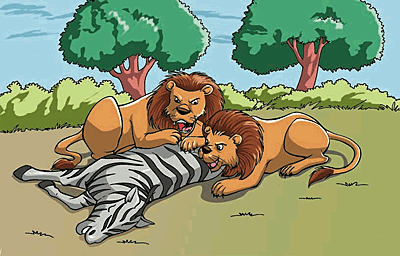zoo-, zoa-, zo-, -zoic, -zoid, -zoite, -zoal, -zonal, -zooid, -zoon, -zoa, -zoan
(Greek: animal, animals; living beings; life)
zoonotic (adjective) (not comparable)
Regarding a disease that is transmissible from animals to humans under natural condition: Infections that pass exclusively from an animal to a person is referred to as being zoonotic.
![]() Zoonotic Diseases or diseases from pets.
Zoonotic Diseases or diseases from pets.
An order of zygomycete fungi which are haustorial ectoparasites or endoparasites of other fungi, protistans and animals; also treated as a class of phylum Zygomycota: Species of Zoopagales are present in soil and water, and are, in addition, parasitic on certain amoebae and other fungi.
Animal life of the geological past: Jane was fascinated by prehistoric animals and looked for zoopalaeontology on the internet to learn more about the intriguing world of extinct faunae.
An animal that obtains its sustenance from another animal: Joan read about zooparasites in her biology book and learned that a zooparasite can be a worm or a protozoa living in an another animal.
zooparasitic (adjective) (not comparable)
Referring to an organism that lives in or on a host: Such zooparasitic creatures thrive and feed on an animal of a different species and cause harm to it.
The study of the diseases of animals; animal pathology: Zoopathology is a branch of medical science that deals with the causes, nature, and effects of animal diseases, especially those of the lower animals.
zooperal (adjective) (not comparable)
Concerning the practice of performing tests on animals: In the lecture, Dr. Timmons spoke about the zooperal aspects in medicine and its importance in fighting diseases and saving the lives of people.
Experimentation on animals, especially lower animals: Some people think that zoopery shouldn't be practiced, but many believe that it is important to test certain medicines on animals before using them on people.
A creature that exists by subsisting on animal matter; carnivore: In the story Mary was reading, the zoophage was hunting for a smaller animal in order to eat its flesh!
zoophagous (adjective) (not comparable)
Carnivorous: Examples of zoophagous, or flesh-eating, animals are lions, cats, and dogs!
The feeding on animals or animal matter: The article Marc was reading was about zoophagy and how vultures were known to consume the meat of dead animals.


The use of drugs in the treatment of animals; veterinary pharmacology: The area of zoopharmacology involves the observation of the effects of plant usage of animals and to find out any medical value of these observations.
A lover of animals; especially one that is more fond of animals than of humans: Aunt Jane must be a zoophile because she is so devoted to her cat Toby and says that she adores it, more than being with people who have disappointed her so much in the past.
A zoophile is also one who is opposed to any animal experimentation, also known as an "antivivisectionist".
A strong and morbid fondness or affinity for animals: Zoophilia is an abnormal sexual attraction to animals.
zoophilic (adjective), more zoophilic, most zoophilic
1. Referring to the strong attraction towards animals: Zoophilic aspects were mentioned in the book that Jane was reading about human psychology.
2. In microbiology, concerning a pathogenic organism that prefers animal hosts instead of human beings: Zoophilic creatures feed, or live, and thrive mainly on nonhuman animals, for example zoophilic fungi.
2. In microbiology, concerning a pathogenic organism that prefers animal hosts instead of human beings: Zoophilic creatures feed, or live, and thrive mainly on nonhuman animals, for example zoophilic fungi.


